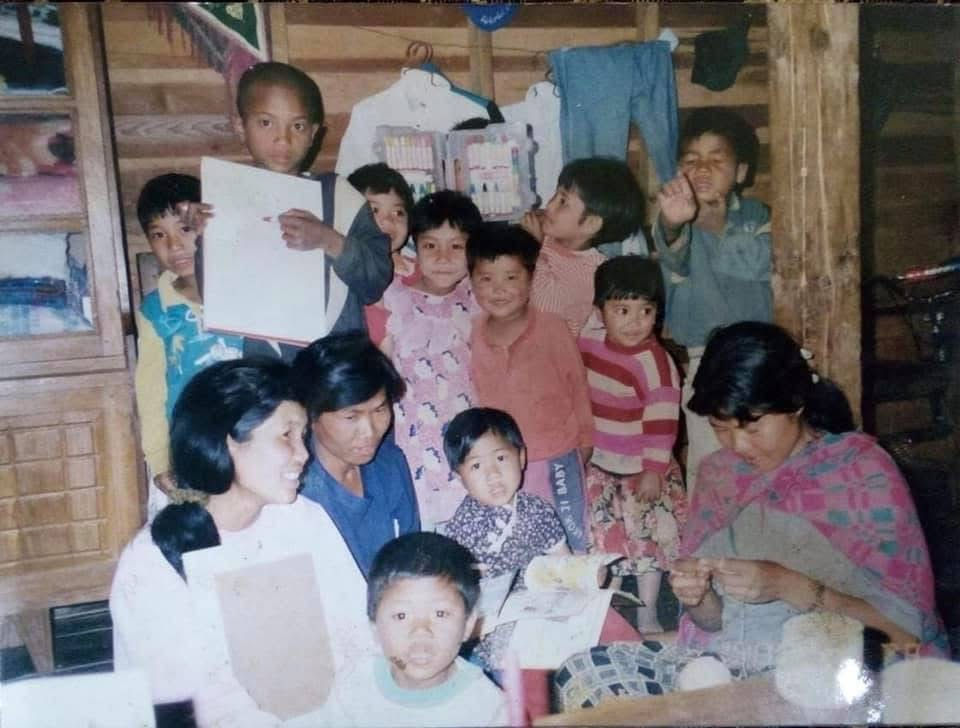Intentionality in Business
- Charles Stringer

- Apr 15, 2022
- 4 min read
Updated: Feb 3, 2023
“Ethical production is just good business.” Robin Lanning, the Director of Marketing and Culture at Tactive, shared this insight during a recent conversation about how their company prioritizes sustainability. Tactive is a digital printing business which offers an array of services including tactile marketing, 3-D mail, promotional products, and more. Their mission is to “bring brands to (real) life by developing and deploying tactile marketing campaigns that get results”. Robin has seen ethical production become increasingly important in recent years. Since the 2010’s, customer demand for sustainable printing and shipping practices has continually risen, and their business has grown by being responsive to that demand.

Prioritizing sustainability is not only in the best interest of the planet, it’s in the best interest of their company. They have “reduced their impact on the environment while attracting the customers they want to work with - brands that care about sustainability as much as they do.” It’s a win for them, and for their customers.
Tactive’s sustainable practices also improve the experience of the end-user. Bombarding potential customers with cheap promotional pens is an excellent way to increase the number of cheap promotional pens in the world (and ultimately in landfills), but the end-user may not find the product especially useful. Tactive has found that their customers are willing to pay a little extra for “higher quality products that the end-user will use for a long time.” Once again, this sustainable practice is good for the planet and good for the company.
The printing industry has a long history of “expecting customers to conform to traditional conventions because that’s just ‘how it is’”. From the beginning, Tactive has gone about things differently. Robin explained: “Our approach has been to let customers dream big, then figure out how to make it happen. Sustainability in this industry is about being proactive rather than reactive.”
They are a digital print shop, so from the start their company was already more sustainable than traditional, offset printing. In Robin’s words, “Offset printing is outstanding if you want to print in large volumes, but the plates, inks, and massive presses aren’t exactly eco-friendly”. Digital printing is not only more sustainable, it allows Tactive to have a greater degree of flexibility in the production process.
“Marketing is more personalized than it used to be, and customers are looking for printed pieces that target specific audiences,” Robin said. Digital printing allows Tactive to meet that demand without the additional time and costs that go into offset printing.
If they spot a typo after a printing proof, “it’s way easier to correct that in a file than to create a whole new plate”. Sourcing sustainable materials is also hugely important. Almost all of their stock paper is “at least 10-20% post-consumer recycled and they are able to provide 100% recycled papers if a customer requests it.”
Of course, there are still nuanced challenges that Tactive has to wrestle with. Robin told a story about a customer who is “very committed to sustainability” and wanted all of the materials included in their direct mail kits to be eco-friendly. They didn’t know that Tactive often has to repackage products into new packaging just to “give the ‘appearance’ that their kit was sustainable”. Robin went on to say: “We can’t always control when a supplier bulk sends something in plastic packaging, for example. In reality, it creates more waste and more time to take the items out of the plastic just to put the items in a brand-new recyclable box.”
Sometimes sustainability doesn’t look how we expect. It’s important to hold space for the complexities of big issues.
By cultivating a deep understanding of the problem, Tactive was able to find innovative solutions that work in their context. Those innovative solutions are things like printing labels for “plain shipping boxes made with 50-100% recycled materials” rather than printing “fully custom, new boxes”. Other times that innovation looks like investing in new technology or equipment. In response to requests for more sustainable packaging options for direct mail kits, they purchased a machine that shreds cardboard. Packaging with recycled cardboard lets them use less plastic, “like bubble wrap”, and “use less filler like shredded crinkle paper, which looks great in packaging but isn’t the best at keeping products safe during shipping”.

Many of their efforts to operate more sustainably were driven by demand from customers. That input from the community has made a big impact on how they operate, they are intentional to stay connected with the community by supporting local non-profits and startups - “particularly in their hometown of Indianapolis”. They are engaged with LGBTQ+ Advocacy Groups, animal rescues, performing arts organizations, and others. Another way they stay connected with the community is by showing up for their staff, whether that’s “cheering them on at a local band performance or attending an art show”.
Staying connected as a team helps them stay connected with the wider Indianapolis community.
Tactive is an innovative company in an industry that is steeped in tradition. Their focus on sustainability allowed them to grow their business while making a positive impact on the planet. Robin concluded the conversation with the note that she is inspired by the team she works with and the offer that they are “always open to giving tours of our print shop, as long as you’re okay with getting kisses from one of our many office dogs”. If you schedule a tour, make sure to let them know we sent you.
Robin Lanning of Tactive interviewed by MORE staff. Images courtesy of Tactive. Article written by Charles Stringer. This article was created in Partnership with Tactive x MORE Magazine.










Comments